![International Design Symposium in Kyoto 2018 [ IDS Kyoto 2018 ]](images/logo.jpg)
Online registration has been closed. Please contact the secretariat for inquiries.
idskyoto-2018 design.kyoto-u.ac.jp
design.kyoto-u.ac.jp
*This program is subject to change. (Last update: February 16, 2018)
Our cities and the societies living in and around them face immense challenges arising from the growth of population, urbanization, globalization, climate change, ageing, resource scarcity, technology shifts, cultural diversity and conflict. Universities, their research communities and partners in industry and society can play a vital role in addressing these challenges.
Kyoto University Design School (Collaborative Graduate Program in Design) is working with the well-known worldwide design institutes and schools on the development of cutting-edge educational resources that address the design-related approaches and methodologies leading to sustainability and resilience of the artifact systems and the society.
Five years have passed since the Kyoto University Design School started. In the previous symposia, we discussed international standardization of design education in order to establish the studies of design. Nearly a hundred students have studied under the Collaborative Graduate Program in Design, and we will have the first graduates from the program next spring in 2018.
In IDS Kyoto 2018, both of the faculty members and the students of the Design School will participate in the discussion over the topics listed below:
Collaborative Graduate Program in Design, Kyoto University
Design Innovation Consortium
Graduate School of Engineering, Kyoto University
Graduate School of Education, Kyoto University
Graduate School of Informatics, Kyoto University
Graduate School of Management, Kyoto University
Takushi Sogo (Associate Professor, Unit of Design, Kyoto University)
Ryunosuke Oka (Graduate School of Education, Kyoto University)
Yudai Kishimoto (Dept of Intelligence Science and Technology, Graduate School of Informatics, Kyoto University)
Takayuki Hirose (Dept of Mechanical Engineering and Science, Graduate School of Engineering, Kyoto University)
Yohei Kiyoyama (Dept of Architecture and Architectural Engineering, Graduate School of Engineering, Kyoto University)
Naoto Yamaguchi (Dept of Architecture and Architectural Engineering, Graduate School of Engineering, Kyoto University)
Access to Kyoto University: http://www.kyoto-u.ac.jp/en/access/
Yoshida Main Campus Map: http://www.kyoto-u.ac.jp/en/access/yoshida/main.html
idskyoto-2018 design.kyoto-u.ac.jp
design.kyoto-u.ac.jp
Spring Design School 2018: http://www.design.kyoto-u.ac.jp/spring-design-school-2018/
IDS Kyoto 2017: http://www.design.kyoto-u.ac.jp/idskyoto-2017/
IDS Kyoto 2016: http://www.design.kyoto-u.ac.jp/idskyoto-2016/
IDS Kyoto 2015: http://www.design.kyoto-u.ac.jp/idskyoto-2015/
ISDV 2014: http://www.design.kyoto-u.ac.jp/isdv2014/
IDS Kyoto 2013: http://www.design.kyoto-u.ac.jp/idskyoto-2013/
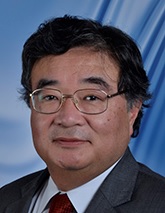
Professor Tetsuo Tomiyama has been Professor of Life Cycle Engineering at Cranfield University since October 2012. Prior to this appointment, he was Professor at Delft University of Technology in The Netherlands and at the University of Tokyo in Japan. He is currently a fellow of CIRP, ASME, and JSME. In May 2012, he was awarded a Royal Society Wolfson Research Merit Award.
Professor Tomiyama’s research activities cover a variety of research topics including design theory and methodology, function modelling, systems architecting, maintenance engineering and service engineering. He has pioneered intelligent CAD, self-maintenance machines, cellular machines, life cycle simulation, and service CAD. He is currently busy with a project to develop a train cleaning robot.
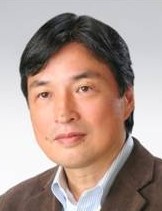
Toru Ishida has been a professor of Kyoto University since 1993. His academic background includes visiting scientist/professor positions at Columbia University, Technische Universitaet Muenchen, Université Pierre et Marie Curie, University of Maryland, Shanghai Jiao Tong University, Tsinghua University, Xinjiang University and Hong Kong Baptist University. He is a fellow of IEEE.
He contributed to start the Department of Social Informatics, Kyoto University, and the Kyoto University Design School. His research interest lies with modeling collaboration within human societies. His researches include Autonomous Agents and Multi-Agent Systems, Community Computing, Digital City, Intercultural Collaboration, and the Language Grid.
Open Innovation Practice (OIP) is a practicum for PhD students in Kyoto University Design School. In this course, the students are required to organize a team of specialists from different disciplines in order to identify and solve the problem faced by industry. With the support of Design Innovation Consortium, this course provides the students an opportunity to tackle with the real and complicated problems in the society with a multidisciplinary team of specialists. In this talk, I would like to discuss how the OIP would impact on the specialists in academia and industry, as well as the students.
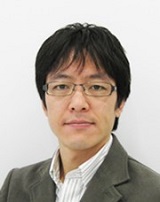
Takushi Sogo is an associate professor at Unit of Design, Kyoto University. He received his B.S. (1997) and M.S. (1998) in information engineering, and his Ph.D. (2001) in informatics from Kyoto University. Prior to his current position, he was a researcher (2001-2012) at Internet Systems Research Laboratories and a principal researcher at Cloud System Research Laboratories (2012-2013.1) in NEC Corporation, and worked on the topics including service platform architecture. He was awarded from Japan Institute of Invention and Innovation for his patent of service platform for mobile devices (2010). Currently he is responsible for Open Innovation Practice in Kyoto University Design School, which aims to develop skills for organizing a team of specialists. Since 2016, he has been a chairperson of the promotion committee of the Design Innovation Consortium, an organization for industry-government-academia collaboration.
The Field Internship is a course that exploits educational power of fields. Students participate in an interdisciplinary group organized by a host organization and tackle an international/social problem addressed by the host organization. Unlike traditional internships in which interns operate individually, this course emphasizes group work for fostering leadership skills. The challenge in this internship is how to raise own presence and lead the team while surrounded by other foreign experts.
This talk introduces how we implement this internship in Bali and explains how this stressful situation affected students.
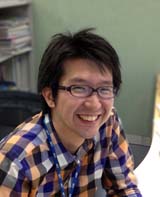
Yohei Murakami has been an associate professor of Unit of Design at Kyoto University since 2014. He received his Ph.D. degree in informatics from Kyoto University in 2006. He is in charge of internship programs in Kyoto University Design School, such as Field Internship and Research Internship. His research interests lie in services computing and multi agent systems. He founded the Technical Committee on Services Computing in the Institute of Electronics, Information and Communication Engineers in 2009. Since 2006, he has been working on the Language Grid to support intercultural collaboration in multilingual field activities for almost ten years, and established NPO Language Grid Association.
The Summer Design School is a workshop event held every September since 2011. More than 300 people gather to take part in more than 20 workshops run in parallel. In this presentation, we consider organizing workshops as a good example of meta design and analyze the Summer Design School workshops from the viewpoints of process and organizers.
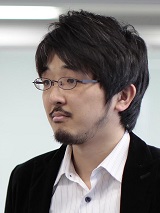
Yusuke Kita is a lecturer at Unit of Design, Center for the Promotion of Interdisciplinary Education and Research, Kyoto University. He got his Ph.D. in Architecture from Kyoto University in 2012. His thesis topic was urban modality, which refers to the way our city exists is captured in its entirety from the viewpoint of the system of people and their environment. His current research interests include general design systems and design processes, as well as architectural and urban planning. He presently serves as the chief editor of “Discussions on Studies of Design” at the Unit of design. He is licensed as a Registered Architect and a Real Estate Transaction Specialist.